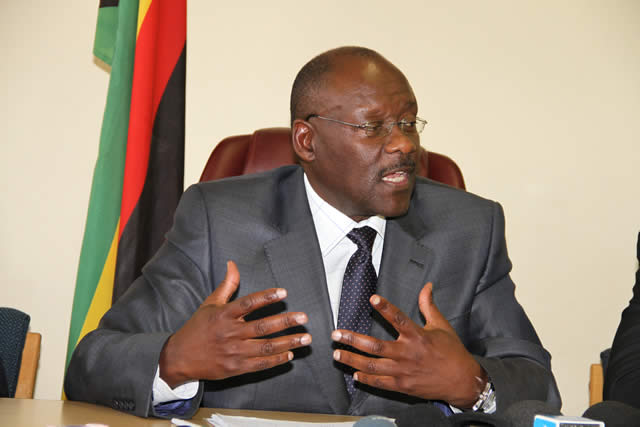EDITORIAL COMMENT: Intensify efforts to address health sector challenges

As one of the methods to reduce government expenditure, the government has frozen recruitment of new workers.
In addition to that the government has flushed out ghost workers, who got paid yet were not working, stopped employing untrained teachers and halted payment of educators deployed at private schools.
It is a gamut of measures really, much broader than the foregoing and has significantly helped in reducing government expenditure.
The recruitment freeze has naturally affected staffing levels in most government departments and workers in service are being multi-tasked and forced to work for longer periods than normal. Here and there service delivery has suffered quality-wise.
But some of the worst impact of the recruitment suspension can be seen in the health service whose work is a matter of life and death for patients.
Speaking while handing over an ambulance donated to Chivhu Hospital by the Zimbabwe National Chamber of Commerce recently, Health and Child Care Minister, Dr David Parirenyatwa, said there is a shortfall of 8,000 nurses countrywide. It worries us that we have such a staggering staffing gap yet 3,000 qualified nurses are jobless.
“At one time,” said Dr Parirenyatwa at the hospital in Chikomba West constituency in Mashonaland East, “when we visited Masvingo General Hospital, we were told that the hospital had 188 nurses but they needed 40 more nurses. The 188 nurses at the hospital were the available posts and all of them were full but they felt they needed 40 more nurses. From there, we then carried out a research around the country to ascertain the human resources situation in other hospitals. We realised that our country needed between 7,000 to 8,000 more nurses to be employed yet currently we have 3,000 qualified nurses that are unemployed. I’m saying this for people to know such that if Minister [Mike] Bimha [who is Chikomba West MP] and I are in the Cabinet, whenever I raise the issue that we need the health establishment to be raised, he may give me his full support.”
We agree with him when he says public health institutions are failing to provide the expected service as a result of that huge shortfall in the strength of nurses in service.
He has consistently called for the employment of more nurses to fill the vacancies so that the public can be served sufficiently and effectively. It must be noted that demand for service at government health institutions is rising because they are the most affordable amid the prevailing economic challenges yet staffing levels are not growing as well. Many people are out of jobs and those still on jobs are paid low salaries or nothing at all.
These people and their families cannot subscribe to medical aid societies to enable them to seek medical attention at private hospitals that are more expensive. They therefore are flocking to more affordable government clinics and hospitals where there are few, generally overworked nurses.
Whereas the low staffing level in the health system, as observed earlier, is not unique to the public sector, we appeal to the government to consider the criticality of health to national wellbeing and offer exceptions to the employment freeze rule.
If it decides to grant the exceptions, the Ministry of Finance and Economic Development, which is responsible for paying civil servants, is unlikely to fill all the vacant nursing positions in one fell swoop given the financial implications that that will pose to the already inadequate resources. Minister Patrick Chinamasa might argue that other ministries are equally distressed, for instance the teaching sector.
However, if his ministry decides to fill, say 500 positions, and deploy them most evenly to institutions where there is the greatest need that would assist a lot in easing the staffing shortfall and the burden on those already at work.
Yet the shortage of nurses is just one of the many challenges facing the health delivery sector, which all need urgent attention.
It is not a secret that drug supply is not always reliable, much medical equipment is old and unreliable and general infrastructure not up to scratch. The other day we reported that a clinic in Matobo had operated for two years without electricity owing to a fault that had not been fixed.
Therefore, the challenges are far greater than the 8,000 nurses shortfall. We expect the government to intensity efforts to address them.
Donors and non-governmental organisations have a long history of providing drugs, medical equipment and so on, complementing the government in delivering a decent health service to the people. They are called upon to scale up their support noting that the government is constrained by the under-performing economy.











Comments